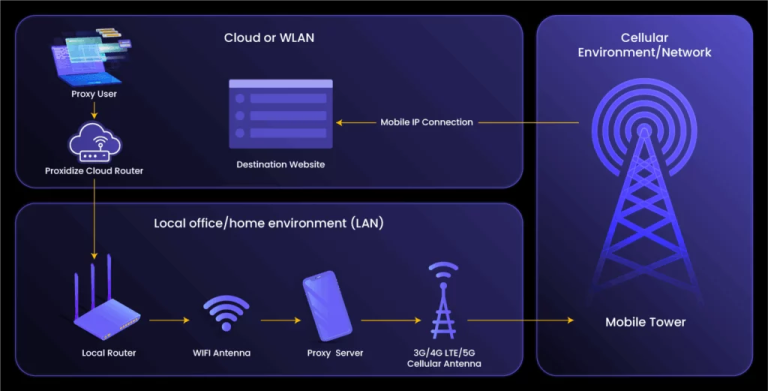In the digital age, privacy and security have become paramount concerns for internet users worldwide. Residential proxies have emerged as a vital tool in addressing these concerns while also offering numerous practical applications for businesses and individuals alike. But what exactly are residential proxies, and why do you need them?
A residential proxy is an IP address assigned by an Internet Service Provider (ISP) to a homeowner. Unlike data center proxies, which originate from servers in data centers, residential proxies come from real devices connected to legitimate home networks. This distinction makes them appear as genuine users on the internet, providing a higher level of authenticity and reducing the risk of being blocked or flagged by websites.
One primary reason people use residential proxies is to enhance online anonymity. When you browse the web using your regular IP address, your location and identity can be easily tracked by websites, advertisers, or even malicious actors. Residential proxies mask your true IP address with one that appears to belong to an actual household in a specific geographic area. This not only helps protect your privacy but also enables access to geo-restricted content that might otherwise be unavailable in your region.
For businesses engaged in activities like market research, ad verification, or competitive analysis, residential proxies are indispensable tools. They allow companies to gather accurate data from various locations without revealing their identity or triggering anti-scraping mechanisms employed by many websites. Since these proxies mimic real user behavior more closely than data center IPs do, they significantly reduce the chances of detection and blocking during large-scale data collection efforts.
E-commerce platforms also benefit greatly from residential proxies when monitoring competitor prices or managing multiple accounts without risking bans due to suspicious activity patterns linked with shared or static IPs. Additionally, social media managers leverage these proxies for account management tasks such as posting content across different regions or running localized marketing campaigns effectively.
Moreover, residential proxies play a crucial role in enhancing cybersecurity measures by preventing Distributed Denial-of-Service (DDoS) attacks targeting specific IP addresses through traffic distribution across multiple proxy points.
In conclusion, residential proxies provide a secure and reliable way to maintain online privacy while enabling numerous business operations that require authentic-looking internet connections from diverse locations worldwide. Whether you are an individual seeking anonymity or a company needing robust data gathering capabilities without compromising security or efficiency-residential proxies offer an effective solution tailored to meet those needs seamlessly.

